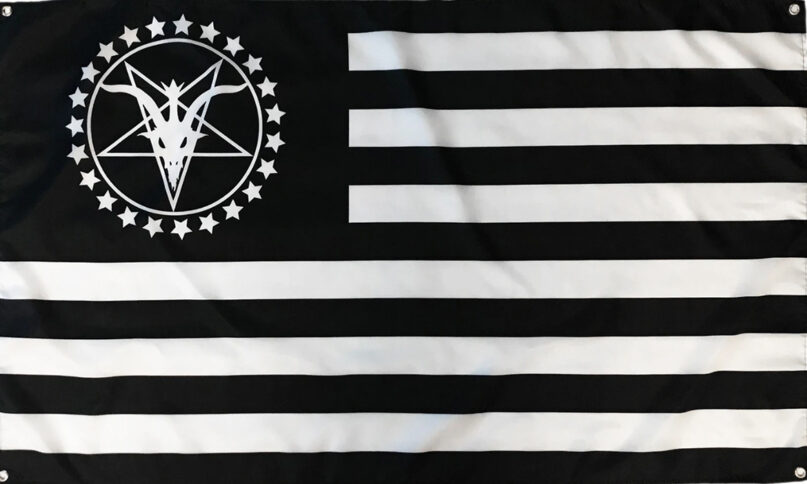The Satanic Temple takes aim at Idaho, Indiana abortion bans
The Salem, Massachusetts-based group contends that the abortion bans infringe on the rights of members who may want to practice the temple's 'abortion ritual.'

BOISE, Idaho (AP) — Religious organizations have long been involved in the debate over Idaho’s strict abortion laws, with Catholic priests, evangelical Christian groups and others frequently lobbying lawmakers and filing legal briefs in support of abortion bans.
Now The Satanic Temple is also weighing in. The Salem, Massachusetts-based group, which doesn’t believe in a literal Satan but describes itself as a ” non-theistic religious organization,” sued Idaho in federal court late last week contending that the state’s abortion bans infringe on the rights of members who may want to practice the temple’s “abortion ritual.”
“Our members hold a sincere religious belief that they can and should have an abortion,” in cases of unwanted pregnancies, W. James Mac Naughton, the attorney representing The Satanic Temple, said in a phone interview Wednesday. The organization filed similar lawsuits in Indiana last month and in Texas last year, and Mac Naughton said he wouldn’t rule out filing additional lawsuits in other states.
Forcing people to abide by one religious belief — that life begins at conception — and denying them the right to practice a different one — that everyone has the right to control their own body — violates religious freedom, he said.
“Abortion is a tricky enough issue as it is, but it just gets all inextricably intertwined with religious beliefs,” Mac Naughton said.
The Satanic Temple, dubbed TST in the lawsuit, is separate from the Church of Satan, which was founded in the 1960s. Founded in 2013, the Satanic Temple advocates for secularism and considers Satan a literary figure who serves as a metaphor for defending personal sovereignty against religious authority.
The Satanic Temple’s religious tenets include beliefs that people should have control over their own bodies, that the freedoms of others should be respected, and that scientific facts shouldn’t be distorted to fit personal beliefs.
The organization also has something it calls a “Satanic abortion ritual,” that includes the process of a person reminding themselves that their body is inviolate, undergoing the abortion and then reciting a personal affirmation.
In the lawsuit, the organization says some of its members in Idaho are “involuntarily pregnant women.” Each woman has a property right to her own uterus, the organization said, and that right — including the ability to remove a “protected unborn child” from the uterus — can’t be legally taken by the state without compensation.
The temple also contends that Idaho subjects involuntarily pregnant women to involuntary servitude by forcing them to provide an embryo or fetus with oxygen, nutrients, antibodies, body heat and other services, during gestation. Finally, the organization claims the state wrongly discriminates against many pregnant people by only allowing abortion for those who were subjected to rape or incest, and not allowing it for people who became pregnant accidentally.
The Idaho Attorney General’s spokesman Scott Graf declined to comment on the lawsuit because the office has a policy against commenting on pending litigation.
At least 21 states including Idaho, Indiana and Florida have enacted laws barring undo government interference in religious freedom, according to the National Conference of State Legislatures.
The laws are not identical, but they frequently state that governments cannot interfere with an individual’s ability to exercise religious freedom without a compelling government interest. When there is a compelling reason, the interference with the person’s religious freedom must be carried out in the least restrictive way.
Spiritual beliefs surrounding abortion and other reproductive health issues are often nuanced, however, even within individual religious groups. The ACLU also sued in Indiana last month, saying the abortion ban violates Jewish theological teachings as well as theology allowing abortions in some circumstances by Islamic, Episcopal, Unitarian Universalist and Pagan faiths.
In June, a synagogue sued over Florida’s law banning many abortions after 15 weeks’ gestation, saying the law prohibits Jewish women from practicing their faith free of government intrusion.

No comments:
Post a Comment